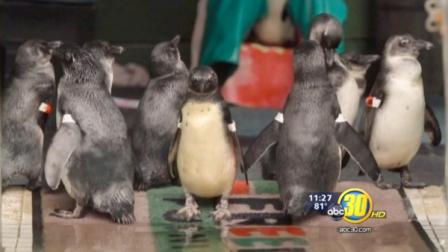INDEPENDENT NEWSPAPERS

Volunteers at SANCOB cleaning
penguins that were caught in the oil slick that leaked from the Seli 1
after heavy storms over the weekend. Picture: Leon Lestrade
Cape Town - Oiled penguins are rolling in – but the surveillance aircraft cannot pinpoint any oil slick.
It is thought the oil must be coming from the wreck of the Seli 1, but in small amounts not visible from the aircraft.
As the number of oiled
birds continues to rise, experts believe many more birds have died at
sea. At least two heavily oiled penguins have been found dead on Robben
Island.
Of the 219 oiled birds found since the beginning of the month, 218 are endangered African penguins.
Southern African Foundation for
the Conservation of Coastal Birds (Sanccob) head Venessa Strauss said on
Tuesday: “They’re still catching them on Robben Island, freshly oiled.
There is no indication of where the oil is coming from. I can’t say for
certain the Seli 1 is still leaking, but I can say there is still oil in
the ocean. I think it probably is from the Seli, but in small amounts
so you can’t see it from the air. The penguins are having a tough time.”
The Environment Department’s
surveillance aircraft K9 flew over the sea every day last week and did
not report any oil slicks. Strauss said the oiled penguins that were
coming in were between 10 percent and 40 percent covered in oil.
“We
haven’t seen any birds 100 percent oiled except those two dead birds. I
think this shows that the ones that are completely covered don’t make it
back to land. They die at sea.” This indicated that the real number of
birds affected by the oil slick was probably far higher.
The wrecked Seli 1 caused an
extensive oil slick in Table Bay when remnants of fuel from its
submerged tanks leaked out in a storm on September 1, polluting the
Table Bay coastline up to Dolphin Beach.
Table Bay is one of the main feeding grounds for seabirds from Robben Island and the West Coast National Park.
Nola Parsons, the foundation’s
vet, led a team of volunteers and researchers on Robben Island over the
weekend to search for oiled birds and identify chicks that had been
abandoned because their parents were oiled.
Oiled birds lose their natural waterproofing, so don’t go to sea and eventually starve.
“Checking birds in the colony is
time-consuming and takes many people to check every bush and burrow. We
are a little bruised and battered with some sore bodies, but happy that
we were able to help the dedicated researchers that have been doing this
all week,” Parsons said.
In 2010
the International Union for the Conservation of Nature’s Red Data list
classified the African penguin as endangered because populations were
rapidly declining. Just seven islands support 80 percent of the global
population. The union attributes the penguins’ decline to food
shortages, both because of use of large amounts of fish caught
commercially and the eastward shift of their main food sources of
anchovy and sardines.
It described penguin deaths from
oil spills as a serious threat, adding that there had been “a dramatic
increase in the number of oiled birds since 1990”. - Cape Times
source
~~~~~~~~~~~~~~~~~~~~~~~~~~~~~~~~~~~~~~~~~~~~~~~~~~~~~~~~~~~~~~~~~~~~~~~~~

The hotel is located in South Africa. It's part of the country's efforts to save the African penguin from extinction.
Hotel workers take care of birds that may have medical conditions and get them ready to be released back into the wild. The hotel is not only about saving penguins, but also about helping to preserve marine life.
source
source
~~~~~~~~~~~~~~~~~~~~~~~~~~~~~~~~~~~~~~~~~~~~~~~~~~~~~~~~~~~~~~~~~~~~~~~~~
Hotel for penguins opens in South Africa
Wednesday, September 12, 2012

A new five-star hotel is open offering luxury swimming pools and all-you-can-eat fish dinners, but it's for penguins only.
The hotel is located in South Africa. It's part of the country's efforts to save the African penguin from extinction.
Hotel workers take care of birds that may have medical conditions and get them ready to be released back into the wild. The hotel is not only about saving penguins, but also about helping to preserve marine life.
source


















No comments:
Post a Comment